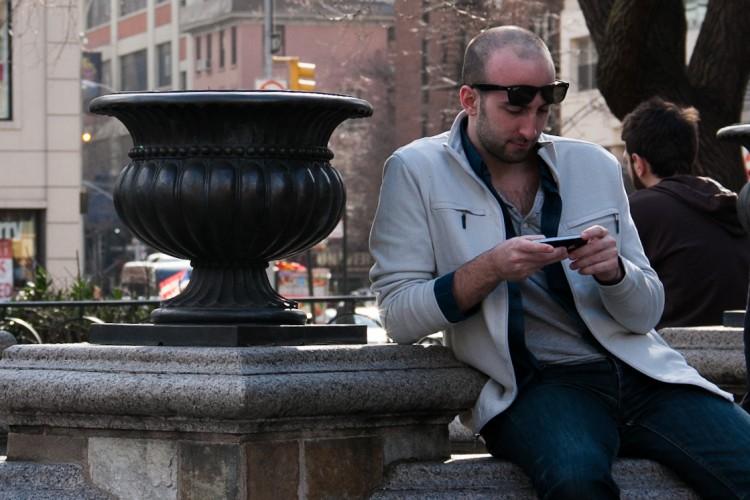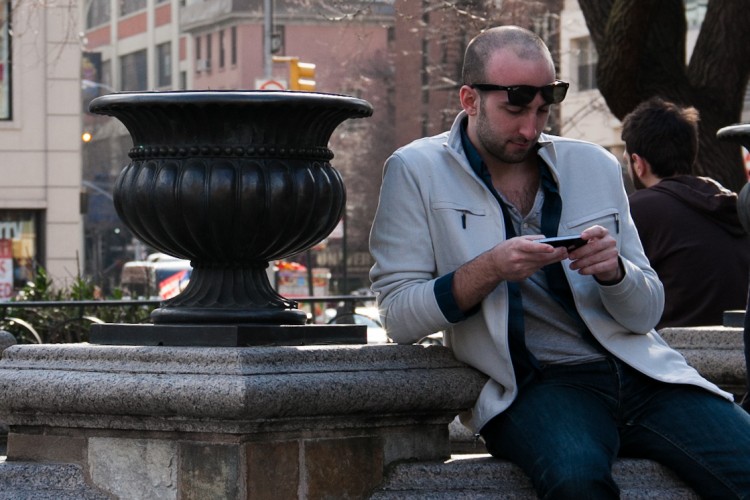A high court upheld a warrantless cellphone search, but only for a minimally invasive investigation as part of an arrest.
The decision came last week when the 7th Circuit U.S. Court of Appeals convicted methamphetamine supplier Abel Flores-Lopez for his involvement in an Indianapolis drug operation.
Authorities had reason to believe that a local dealer was working with Flores-Lopez, and had a paid informant offer to buy a large quantity of the drug so that they could “land a bigger fish.” Flores-Lopez took the bait, and when he showed up to deliver the goods, both men were arrested.
Officers seized a cellphone Flores-Lopez was carrying, and two additional phones from his truck. Each cellphone was searched for its telephone number, which authorities later used to subpoena three months of call history.
The subpoena revealed many conversations between Flores-Lopez and his co-conspirators, and authorities hoped to introduce the call histories into evidence. But the defense objected, stating that the search of the cellphones was unreasonable because they were obtained without a warrant.
While the phone number itself may not have been incriminating evidence, it led police to several communications that were. That evidence, the defense argued, was the fruit of an illegal search, and was therefore inadmissible.
Similar cases have been tried in the past. Last year, the U.S. Supreme Court chose to pass on deciding whether police needed search warrants before examining the information and texts from the cellphones of the individuals they arrested, and lower courts have been found to rule on both sides of the issue.
According to Judge Richard Posner, “Lurking behind this issue is the question whether and when a laptop or desktop computer, tablet, or other type of computer (whether called a ‘computer’ or not) can be searched without a warrant—for a modern cellphone is a computer.”
In his examination of the Flores-Lopez case, Judge Posner drew parallels to the cellphone and other conventional “containers” of information, like a diary, but made sure to distinguish its unique set of qualities.
“A modern cellphone is in one aspect a diary writ large,” writes Judge Posner for a three-judge panel. “Even when used primarily for business it is quite likely to contain, or provide ready access to, a vast body of personal data.”
Judge Posner goes on to say that the potential invasion of privacy in a search of a cellphone is even greater than in a search of a conventional container, such as a purse or address book.
“Analogizing computers to other physical objects when applying Fourth Amendment law is not an exact fit because computers hold so much personal and sensitive information touching on many private aspects of life,” he writes. “There is a far greater potential for the ‘intermingling’ of documents and a consequent invasion of privacy when police execute a search for evidence on a computer.”
However, Judge Posner concluded that if the search is justified (with authorities seizing “evidence that the defendant or his accomplices might destroy, discard, or conceal”), the intrusion is minimal (in this case, only a phone number), and the seizure is connected to an arrest, than a warrant is ultimately unnecessary.
“It’s not even clear that we need a rule of law specific to cellphones or other computers,” he writes. “If police are entitled to open a pocket diary to copy the owner’s address, they should be entitled to turn on a cellphone to learn its number.
“If allowed to leaf through a pocket address book, as they are, they should be entitled to read the address book in a cellphone. If forbidden to peruse love letters recognized as such found wedged between the pages of the address book, they should be forbidden to read love letters in the files of a cellphone,” the judge said.
Posner said he could imagine justifications for a more extensive search, and even detailed various scenarios, but he restrained himself from ruling beyond the case at hand.
“These are questions for another day, since the police did not search the contents of the defendant’s cellphone, but were content to obtain the cellphone’s phone number,” he writes.
The cellphone search was limited to the call history of the one phone that Flores-Lopez admitted was his—he denied any connection to the other two found in his truck. After a brief hearing of the defendant’s objection, the judge overruled it.
Flores-Lopez was sentenced to 10 years.







